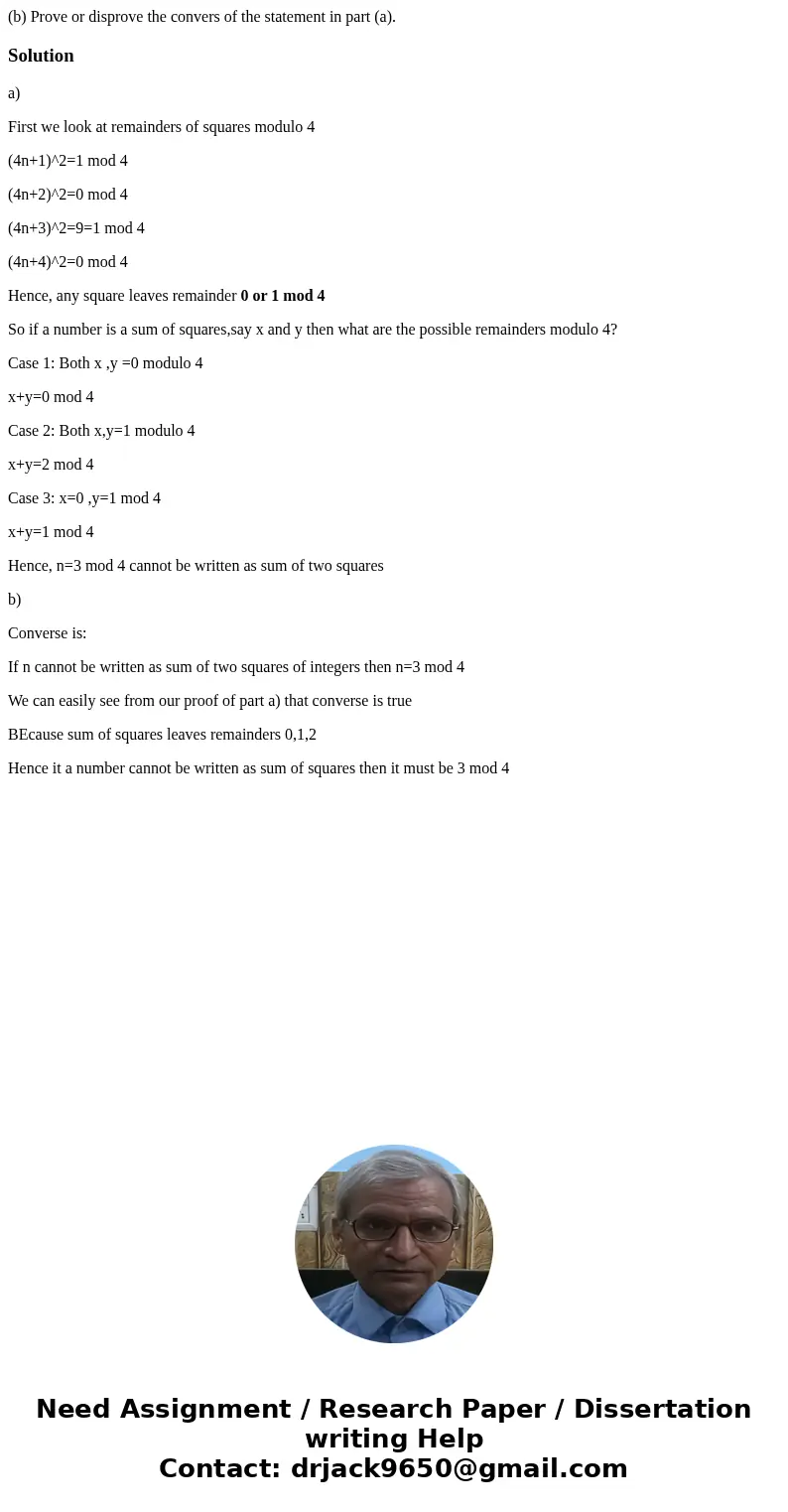b Prove or disprove the convers of the statement in part aSo
(b) Prove or disprove the convers of the statement in part (a).
Solution
a)
First we look at remainders of squares modulo 4
(4n+1)^2=1 mod 4
(4n+2)^2=0 mod 4
(4n+3)^2=9=1 mod 4
(4n+4)^2=0 mod 4
Hence, any square leaves remainder 0 or 1 mod 4
So if a number is a sum of squares,say x and y then what are the possible remainders modulo 4?
Case 1: Both x ,y =0 modulo 4
x+y=0 mod 4
Case 2: Both x,y=1 modulo 4
x+y=2 mod 4
Case 3: x=0 ,y=1 mod 4
x+y=1 mod 4
Hence, n=3 mod 4 cannot be written as sum of two squares
b)
Converse is:
If n cannot be written as sum of two squares of integers then n=3 mod 4
We can easily see from our proof of part a) that converse is true
BEcause sum of squares leaves remainders 0,1,2
Hence it a number cannot be written as sum of squares then it must be 3 mod 4

 Homework Sourse
Homework Sourse